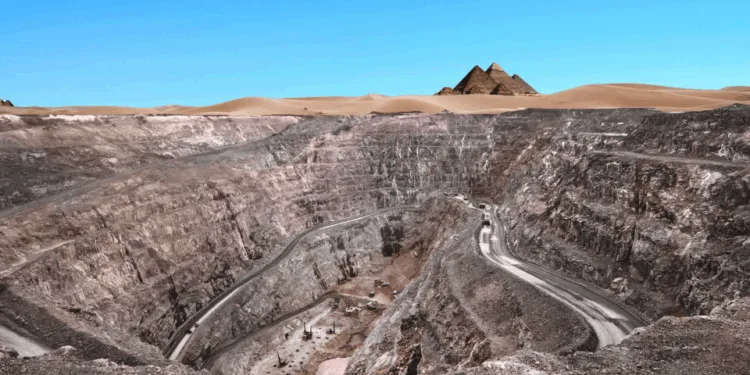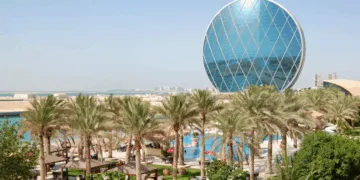Egypt is a country that stands out for its vast infrastructure and unmatched strategic location, with abundant mineral resources, including gold, copper, silver, zinc, platinum, and a wide variety of other precious and basic metals.
Egypt’s income from mineral wealth development increased by 131% annually to over $446 million in fiscal year 2024-2025, thanks to strong growth in gold and silver production.
Minister of Petroleum and Mineral Resources Karim Badawi spoke at the Egypt Mining Forum 2025. He claimed that the production of gold and silver reached 640,000 ounces during the year, up 14% from the previous year, and generated $1.54 billion in sales, an increase of 57%.
He added that the improvement was due to greater export performance and increased production volumes.
Under the Vision 2030 program, the mining industry is undergoing a significant conversion as the government aims to establish it as a regional hub for mineral discovery and increase its gross domestic product (GDP) through environmentally conscious and sustainable practices.
Egypt is a country that stands out for its vast infrastructure and unmatched strategic location. Badawi stated that the nation has abundant mineral resources, including gold, copper, silver, zinc, platinum, and a wide variety of other precious and basic metals.
He continued that the Egyptian government’s economic reform program supports the vast potential, which aims to achieve financial stability, attract investments, and make its market attractive. It will help solidify Egypt’s position as a unique and remarkable destination for international investors. It will help place the country on the global mining investment map in line with the Sustainable Development Strategy.
Egypt’s Sustainable Development Strategy is also called Egypt Vision 2030. It is an all-around national plan aligned with the United Nations’ Sustainable Development Goals (SDGs). The goal of the plan was to create a thriving and noble life for its residents through economic, social, and environmental development. The strategy emphasizes inclusive growth, social justice, and environmental sustainability by focusing on economic diversification, human capital growth, and institutional reform.
The private sector helps the nation to upgrade its economic conditions. Its working age population has been increasing by an average of 1.2 million people every year for the past five years. Private sector companies help in job creation in the country. They help in innovation and productivity growth. Private investment contribution in the country has grown 6.3% of gross domestic product over the last ten years, which is only one-fifth of what middle-income nations typically invest.
The minister stated that ore and mineral production increased to 26 million tonnes, a 39% increase over the previous year. The country exported 1.4 million tonnes of mining goods and ores, bringing in sales worth $52.5 million in 2024-2025.
The minister signed two deals with significant global mining companies during the meeting to support the exploration activities.
The initial agreement is a licensing agreement for gold exploration and related minerals in the country. Egypt’s State Information Service claims that the Egyptian Mineral Resources Authority (EMRA), the Ministry of Petroleum and Mineral Resources, and a South African-based company, Centamin Central, a division of AngloGold Ashanti, also signed a licensing contract for exploring gold and related minerals.
A massive Canadian mining company, Barrick, signed the second deal. It aims to open the doors for more exploration and collaboration in the country.
According to Badawi, this step highlights that the state’s policy has been successful in generating foreign investment. It also reflects its strong desire to bring in foreign companies to increase their investments in Egypt’s mining industry. It also serves as global evidence of the confidence of major international companies in Egypt’s investment climate.

















